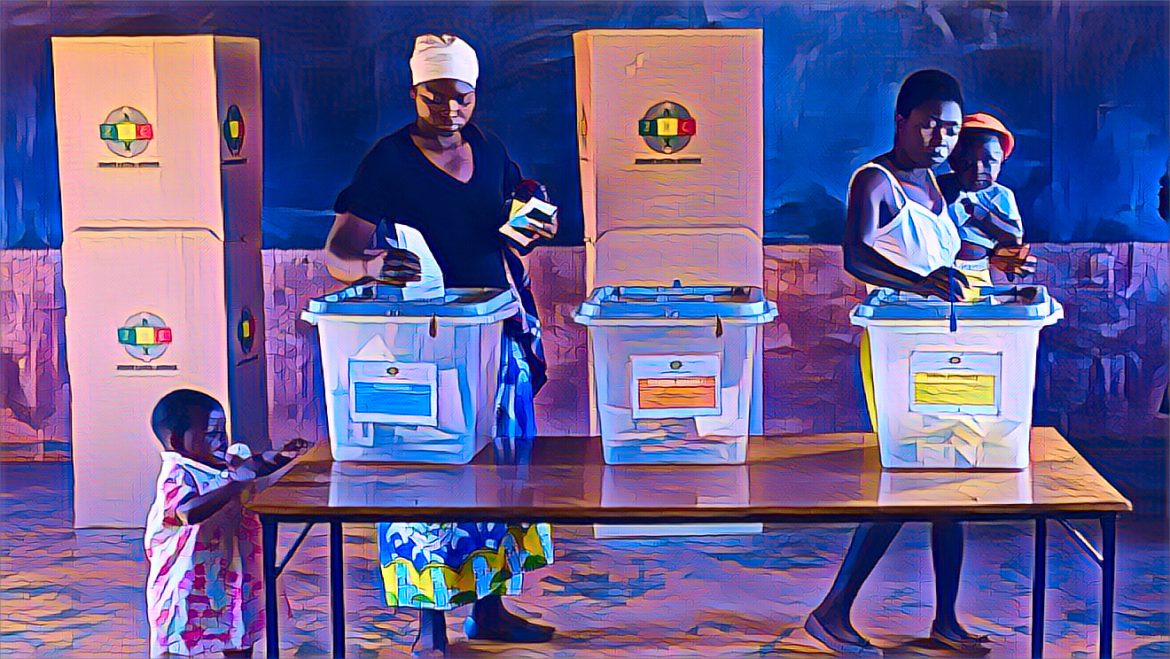KEY POINTS
- Zimbabwe’s electoral integrity is compromised by political interference and violence.
- Flawed elections deepen divisions and harm economic growth and stability.
- Reforms and transparency are crucial to rebuilding electoral trust.
Elections are a cornerstone of democracy, a process where citizens express their will and hold leaders accountable. For Zimbabwe, however, the promise of electoral integrity remains elusive.
Since gaining independence in 1980, the country has faced recurring allegations of vote manipulation, political violence, and institutional bias, casting a shadow over its democratic processes.
As the nation continues to navigate political and economic challenges, ensuring free, fair, and transparent elections is critical not only for its governance but also for restoring public trust and stability.
This article delves into the challenges facing Zimbabwe’s electoral system, their broader implications, and the potential pathways to reform.
The challenges undermining electoral integrity
Zimbabwe’s electoral challenges are rooted in systemic flaws that compromise fairness and transparency. Central to these issues is the role of the Zimbabwe Electoral Commission (ZEC), which is tasked with overseeing the election process.
Allegations of partiality and inefficiency have dogged the ZEC, with critics questioning its independence from political influence. Voter registration processes, marred by inaccuracies and limited access for opposition supporters, further erode trust in the institution.
Political violence remains a significant deterrent to free elections. Opposition supporters have frequently been targeted, with reports of harassment and intimidation often implicating state security forces and politically aligned groups. This environment of fear discourages voter turnout and undermines the democratic principle of free choice.
Media control adds another layer of complexity. State-run media outlets dominate Zimbabwe’s information landscape, often providing disproportionate coverage favoring the ruling party.
Opposition candidates struggle to access equal airtime, limiting voters’ exposure to alternative perspectives. Meanwhile, misinformation and propaganda during campaigns contribute to a skewed electoral narrative.
Logistical issues, such as delayed vote counts and insufficient voting materials, further diminish the credibility of the electoral process. Allegations of vote-rigging and ballot manipulation frequently surface, fueling public skepticism and protests.
The ripple effects of compromised elections
The impact of flawed elections extends far beyond polling stations. When citizens lose faith in the electoral process, public trust in governance diminishes, leading to voter apathy. This erosion of confidence creates a vicious cycle where fewer people participate in elections, further undermining their legitimacy.
Political polarization is another consequence. Disputes over election results deepen divisions between the ruling party and opposition groups, often culminating in protests and unrest. This polarization hampers dialogue and makes consensus-building on national issues nearly impossible.
Economically, the repercussions are severe. Perceptions of electoral fraud and governance issues deter foreign investment and lead to international sanctions.
These economic penalties, combined with political instability, exacerbate Zimbabwe’s challenges, making it harder for the country to recover and grow.
At a societal level, disputes over elections often intersect with competition for resources, such as land and water. These conflicts, particularly between farmers and herders, can escalate, threatening social cohesion and stability. In this context, electoral reform is not just a political imperative but a crucial step toward national harmony.
Pathways to electoral reform
Despite these challenges, there are opportunities for Zimbabwe to rebuild trust in its electoral system. Reforming the ZEC is a critical starting point.
Ensuring that its leadership and operations are free from political interference would restore confidence in its ability to conduct impartial elections. Introducing biometric voter registration systems could address inaccuracies in voter rolls, reducing opportunities for fraud.
Education is another powerful tool for reform. Civic education campaigns can empower citizens by informing them about their electoral rights and processes.
These initiatives are particularly important in rural areas, where access to information is often limited. Partnerships with civil society organizations can amplify these efforts, ensuring they reach all segments of the population.
Technology also offers promising solutions. Real-time vote counting and digital result transmission can enhance transparency and reduce the risk of manipulation. However, implementing such technology requires significant investment in infrastructure and training.
The role of international and regional organizations is indispensable. The African Union and Southern African Development Community (SADC) can provide support by monitoring elections, facilitating dialogue between political parties, and encouraging adherence to democratic norms.
Learning from the successes of other African countries, such as Kenya’s use of biometric systems and South Africa’s transparent electoral processes, could also guide Zimbabwe’s reform efforts.
A vision for transparent elections
The path to electoral integrity in Zimbabwe is undeniably complex, but the stakes are too high to ignore. Transparent and fair elections are essential for restoring public trust, fostering political stability, and unlocking the country’s economic potential.
Achieving this vision requires collaboration among all stakeholders—government institutions, opposition parties, civil society, and international allies.
By addressing systemic flaws, empowering citizens, and leveraging technology, Zimbabwe can transform its electoral system into a model of democracy.
The journey will demand commitment and courage, but the rewards—stability, prosperity, and a government that truly reflects the will of its people—are worth the effort.
Conclusion
Zimbabwe’s electoral integrity is not just a political issue; it is a national priority that impacts every facet of society. From rebuilding trust in governance to fostering economic recovery, fair elections are the foundation for a brighter future.
By embracing reform and prioritizing transparency, Zimbabwe can turn the page on its troubled electoral history and pave the way for a more inclusive and democratic tomorrow.


